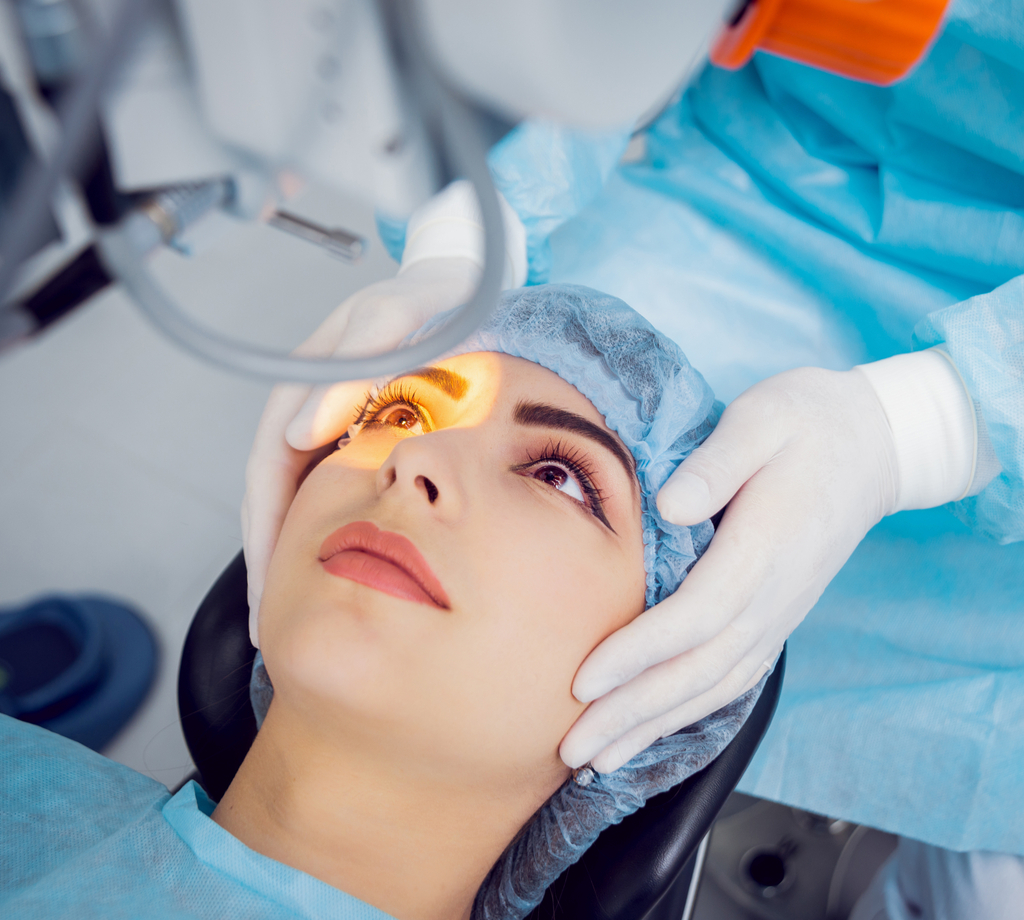It is expedient for every individual to know some essential facts about laser eye surgery. Besides knowing the meaning of laser eye surgery, other facts shouldn’t be hidden. Do you know the laser eye surgery procedure? Of course, you can have background knowledge about it even before laser eye surgery.
Let us start by saying laser eye surgery helps treat several eye issues and improves vision quality. In this age, Lasik surgery has become popular. But not everyone can partake in this surgery.

Hence, this write-up will discuss the crucial things you need to know about laser eye surgery. First, however, creating a piece of background knowledge would be nice. So, it is essential to start dishing out vital information by explaining what laser eye surgery entails. Are you ready for the ride? Let’s ride!
What is laser eye surgery?
The front surface (cornea) of your eyes is reshaped using lasers during laser eye surgery or laser vision correction to improve your focus. It can treat astigmatism, long-sightedness, and short-sightedness.
Most adults over 18 are eligible for laser eye surgery. Ideally, your eye prescription has mainly remained unchanged for roughly two years. However, if you have a high prescription for eyeglasses or are older, lens surgery can be a better option. Read more about What to do to stop children from visiting a Sydney eye clinic by visiting https://fight4ourhealth.org/what-to-do-to-stop-children-from-visiting-a-sydney-eye-clinic/
Furthermore, people who are shortsighted, nearsighted, or farsighted can have their vision corrected by LASIK. Remember, Lasik stands for laser in-situ keratomileusis. One of many vision correction procedures alters the corneal tissue, the transparent front portion of the eye, to direct light toward the retina at the back of the eye. Don’t be confused.
Laser eye surgery is often called LASIK eye surgery. And, of course, this laser surgery procedure is different from cataract surgery.
When is laser eye surgery needed?
In laser therapy, specific body structures are cut, shaped, or removed using various intensities of concentrated light rays. Compared to traditional surgery, laser therapy offers a less invasive method for the delicate layers of your eyes.
Your risk of problems and recovery time following laser eye surgery may be reduced. Although most people associate laser eye surgery with vision correction, it may also treat other problems like cataracts, diabetes-related retinopathy, cancer, and glaucoma.
On the other hand, laser surgery is needed when refractive surgery is needed, or one needs vision correction. In that case, one may need laser surgery to battle myopia, hyperopia, and astigmatism.
What are the categories of laser eye surgery?
As previously indicated, medical practitioners can use lasers to remove, remodel, or kill tissue to treat various illnesses. Therefore, both laser surgeries and laser-guided surgeries could be applied to these treatments.

Refractive laser surgery is the most used laser therapy for eyesight issues. This group includes the following three primary types of laser surgery;
LASIK
A surgeon performs this treatment using two lasers, one to reshape the cornea and the other to open up a flap in the outward of your cornea. Once the procedure is finished, they smooth the defensive flap back over your eye, and it will remain in place without stitches.
SMILE
The eye surgeon uses a laser to readjust or reshape the cornea in this category. First, the surgeon will reshape the cornea via a small incision. The incision seals itself off after the process.
Surface laser treatment
In these procedures, the surgeon first reshapes the cornea after the surface layer of cells covering it is removed. This skin layer naturally comes back over time.
How long does laser eye surgery last?
Theoretically, laser vision correction is a lifetime procedure because it is permanent. Although the procedure fixes the current eyesight issue, whether you’ve had surgery or not, your eyes will continue to alter over time.

Therefore, even while the procedure can solve your initial visual issue, you might experience subsequent vision changes, especially if you had laser surgery as a young patient. However, according to one study, even 5 years after having laser eye surgery for vision correction, 94% of patients could still avoid wearing contacts or glasses.
Around 1 in 10 laser surgery patients require additional operations to achieve the most significant outcomes.
How does laser eye surgery function?
Your surgeon will take measurements of your eyes, assess your needs and any unique risks you may have before the treatment, and provide you with detailed preoperative instructions. You should plan an outpatient operation and dress comfortably on the day of surgery.
Then, arrange for someone to drive you home afterward. Even though the length of the operation can change depending on the patient and the location, laser vision correction typically takes thirty minutes per eye. What to anticipate during laser vision correction surgery is as follows:
- A medical practitioner will apply eye drops to numb your eyes.
- To hold your eye still and prevent blinking, they will put an eyelid holder with a tiny suction cup over it. Your vision can be dim or completely obscured, and you might feel like a finger is pressing against your eyelid.
- Your cornea will have a tiny tissue flap created in it that your surgeon will fold back using a laser.
- Your doctor will instruct you to maintain a straight-ahead gaze while they remodel your cornea with a different laser. This laser is set up to address your eyesight issue based on precise measurements before your operation. Again, you can hear a clicking sound as this part of the operation occurs.
- Your surgeon will finish the surgery by repositioning the corneal flap when the reshaping is finished.
Can complications arise after laser eye surgery?
Any surgery has a chance of complications, and laser eye surgery is no exception. The following are potential adverse effects or side effects of laser eye surgery:
- Eye pain
- Redness in the eye
- Light sensitivity
- Infections
- Vision disturbances like glares or halos
On a final note
Laser eye surgery cost is not expensive in Australia. So, nothing should stop you from doing the needful. Your eye doctor may inform you to use contact lenses before and after the surgery. So, there’s no cause for alarm. Also, we perceived that you need to know more about laser eye surgery procedures.
Dear reader, we believe you’ve seen something tangible here. In this article, we discussed the meaning of laser eye surgery. Then, we explained some essential facts you need to know about laser eye surgery. Do you have a question? Please feel free to ask!

